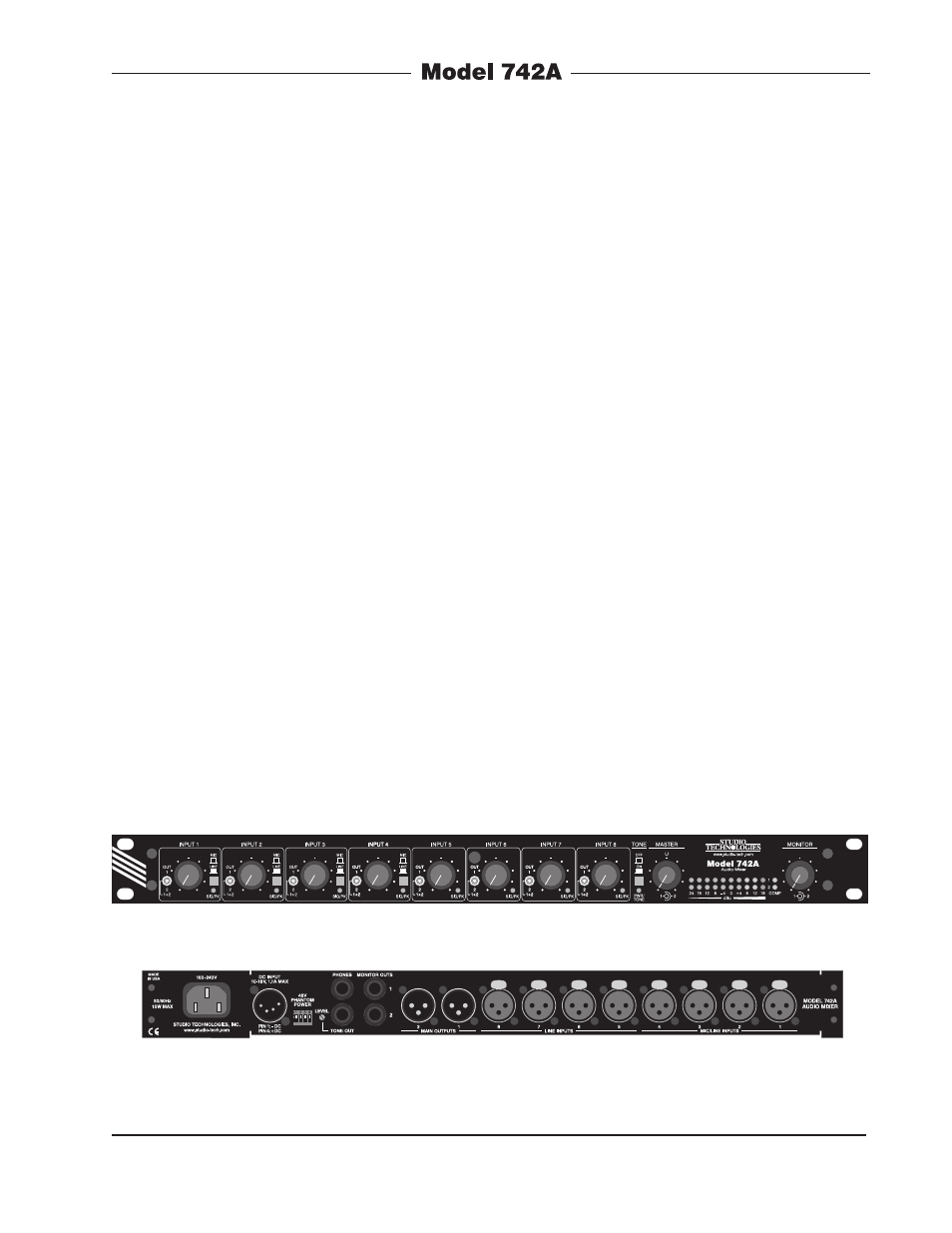Introduction, What this user guide covers, System overview – Studio Technologies 742A User Manual
Page 5

Model 742A User Guide
Issue 1, July 2012
Studio Technologies, Inc.
Page 5
Audio Mixer
Introduction
What This User Guide Covers
This User Guide is designed to assist you
when installing, configuring, and using
the Model 742A Audio Mixer. Additional
background and technical information is
also provided, as well as a product block
diagram included at the end of this guide.
System Overview
The Model 742A Audio Mixer is expressly
designed for use in electronic-news-gath-
ering (ENG) vehicles and small produc-
tion truck applications. Many other fixed
and mobile audio production, on-air, and
utility applications can also be supported.
Model 742A features include four mic/line
inputs with +48 volt phantom power, four
line inputs, two output buses, LED level
metering, flexible monitoring, and AC and
DC powering. The Model 742A was spe-
cifically designed as a dual-channel audio
mixer, rather than as a typical stereo de-
vice. This approach makes it excellent for
“dual-path” on-air applications. As a utility
Figure 2. Model 742A Back Panel
Figure 1. Model 742A Front Panel
mixer the Model 742A can create two inde-
pendent monaural signals, excellent for
general signal monitoring, talent cueing,
or intercom support uses.
The Model 742A is targeted for use by
operators with numerous audio sources
that need to be quickly and reliably ad-
justed and routed to create one or two
independent audio mixes. In these days
of operators having too many tasks to
handle, and too little time to do them, the
Model 742A is a refreshing combination
of performance and simplicity. Using their
experience in mobile broadcast applica-
tions, the engineers at Studio Technolo-
gies were able to design the Model 742A
to include all the crucial features required
to meet the needs of fast-paced news-
gathering operations, while still providing
the operator with an easy-to-use product.
The hallmarks of the Model 742A are
application flexibility, simplicity in use,
audio quality, and long-term reliability.
For powering, the unit can be directly
connected to an AC mains source. A true
“universal input” design that’s intended
